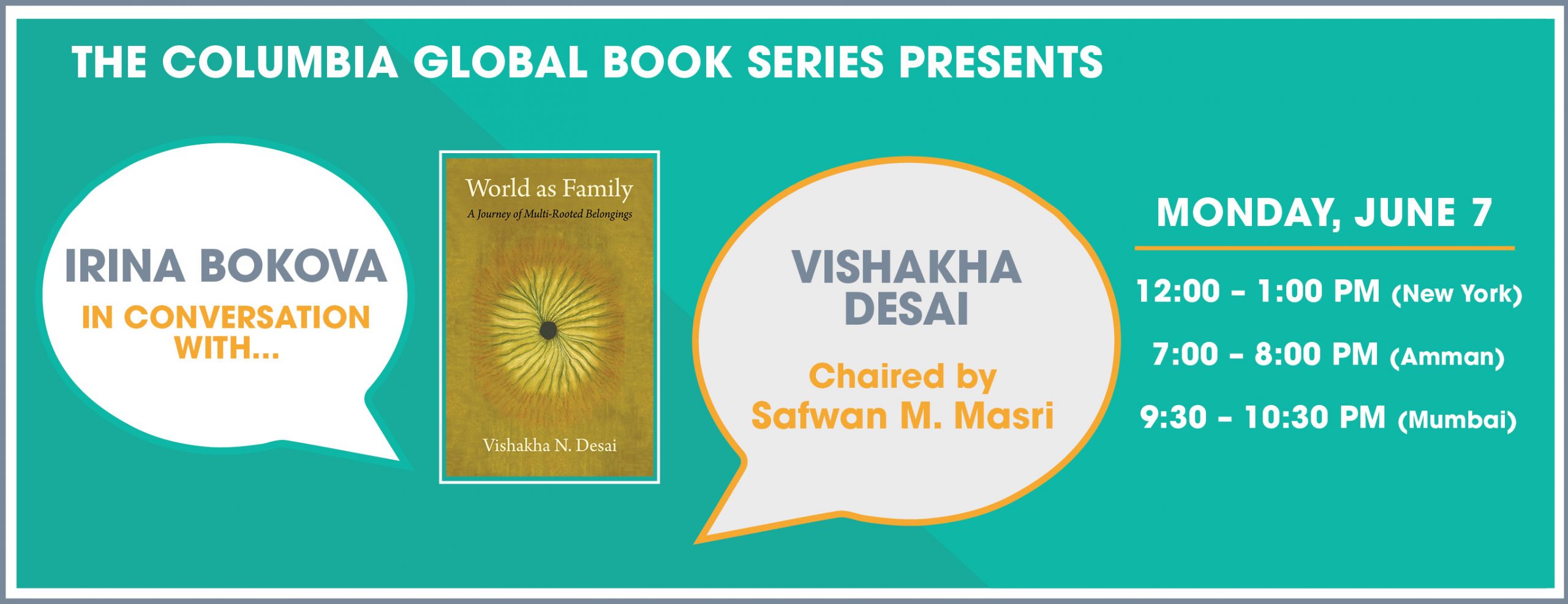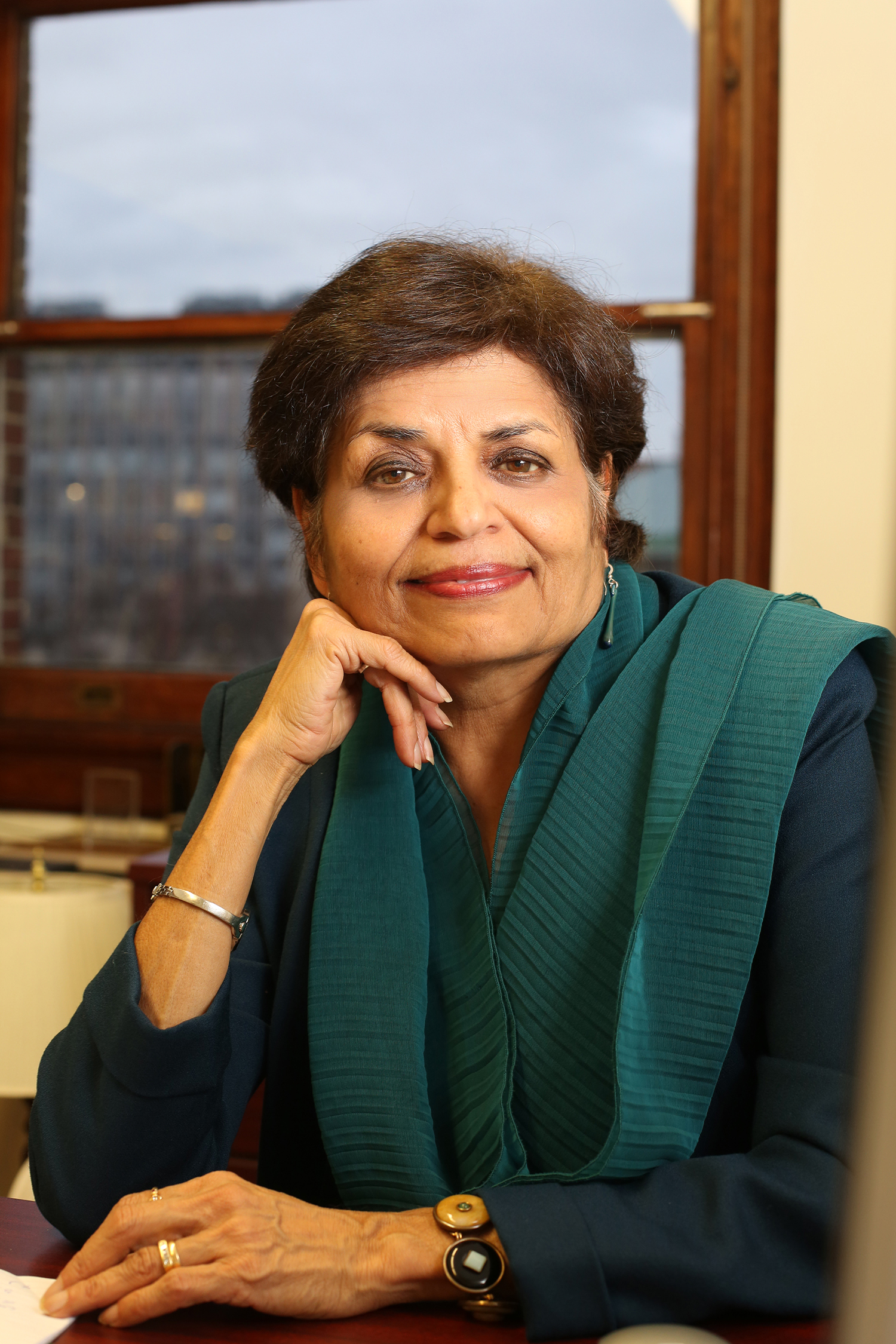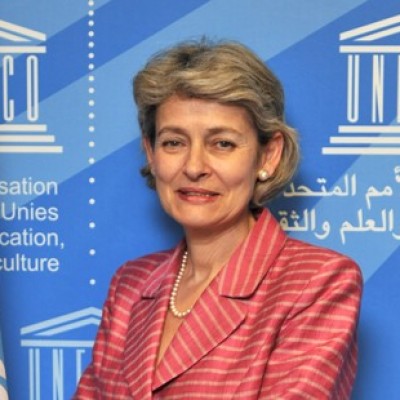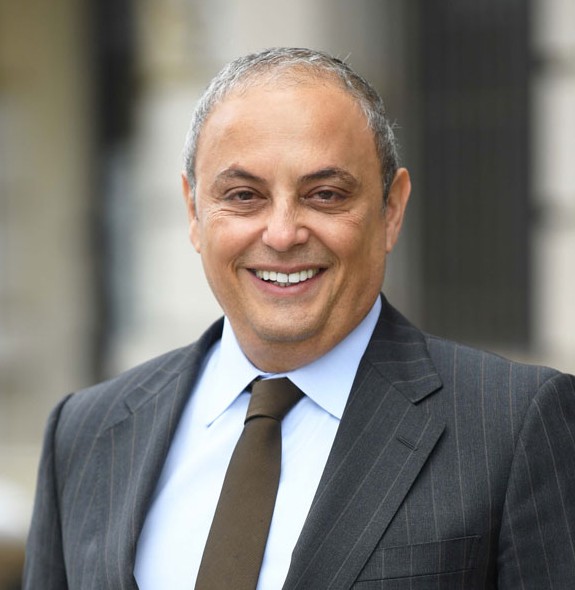The Columbia Global Book Series Presents
In association with the Committee on Global Thought
World as Family: A Journey of Multi-Rooted Belongings
Monday, June 7 | 12:00 PM – 1:00 PM ET

A Vedic phrase asks us to “treat the world as family.” In our age of global crises—pandemics, climate crisis, crippling inequality—this sentiment is more necessary than ever. Solutions to these seemingly insurmountable problems demand new approaches to thinking and acting locally, nationally, and transnationally, sometimes sequentially but often simultaneously. This is the mentality of the immigrant, the exchange student, the global native, and all who have made a life in a new place by choice or by necessity. Yet we suffer from a lack of the truly capacious thinking that is so urgently needed.
Vishakha N. Desai uses her life experiences to explore the significance of living globally and its urgency for our current moment. She weaves her narrative arc from growing up in a Gandhian household in Ahmedabad to arriving in the United States as a seventeen-year-old exchange student and her subsequent career as a dancer, curator, institutional leader, and teacher against the broad sweep of political and social changes in the two countries she calls home. Through her personal story, Desai reframes the idea of what it means to be global, considering how to lead a life of multiple belongings without losing local and national affinities. Vividly conjuring the complexities and exhilaration of a life that is rooted in many places, World as Family is a vital book for everyone who aspires to connect across borders—real and perceived—and bring to fruition the ideal of a global family.


 Safwan M. Masri
Safwan M. Masri